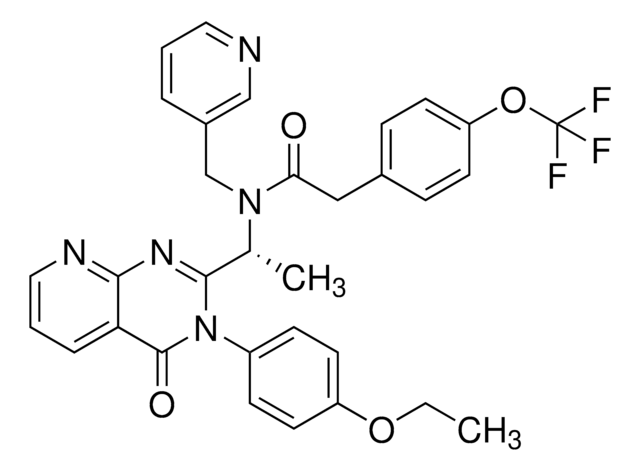ABE23
Anti-Gdown1 Antibody
from sheep, purified by affinity chromatography
Synonyme(s) :
Myocardial zonula adherens protein, GRINL1A upstream protein, Gup, Gdown1
About This Item
Produits recommandés
Source biologique
sheep
Niveau de qualité
Forme d'anticorps
affinity isolated antibody
Type de produit anticorps
primary antibodies
Clone
polyclonal
Produit purifié par
affinity chromatography
Espèces réactives
human
Technique(s)
ChIP: suitable
western blot: suitable
Isotype
IgG
Numéro d'accès NCBI
Numéro d'accès UniProt
Conditions d'expédition
wet ice
Modification post-traductionnelle de la cible
unmodified
Informations sur le gène
human ... POLR2M(81488)
Description générale
Immunogène
Application
Chromatin Immunoprecipitation Sequencing Analysis: A representative lot was used by an independent laboratory in HeLa cells. (Price, D., et al. (2012). Cell. 45(1):38-50.)
Epigenetics & Nuclear Function
RNA Metabolism & Binding Proteins
Qualité
Western Blot Analysis: 1 µg/mL of this antibody detected Gdown1 on 10 µg of HeLa cell lysate.
Description de la cible
Forme physique
Stockage et stabilité
Remarque sur l'analyse
HeLa cell lysate
Autres remarques
Clause de non-responsabilité
Vous ne trouvez pas le bon produit ?
Essayez notre Outil de sélection de produits.
Code de la classe de stockage
12 - Non Combustible Liquids
Classe de danger pour l'eau (WGK)
WGK 1
Point d'éclair (°F)
Not applicable
Point d'éclair (°C)
Not applicable
Certificats d'analyse (COA)
Recherchez un Certificats d'analyse (COA) en saisissant le numéro de lot du produit. Les numéros de lot figurent sur l'étiquette du produit après les mots "Lot" ou "Batch".
Déjà en possession de ce produit ?
Retrouvez la documentation relative aux produits que vous avez récemment achetés dans la Bibliothèque de documents.
Notre équipe de scientifiques dispose d'une expérience dans tous les secteurs de la recherche, notamment en sciences de la vie, science des matériaux, synthèse chimique, chromatographie, analyse et dans de nombreux autres domaines..
Contacter notre Service technique








